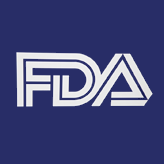Investigational Sarcoma Drug GPX-150 Gets Orphan Drug Designation
The FDA granted orphan drug designation for a developmental agent known as GPX-150, an analog of doxorubicin currently being tested for use in advanced or metastatic soft-tissue sarcoma.
GPX-150 is an analog of doxorubicin

The US Food and Drug Administration (FDA) granted orphan drug designation for a developmental agent known as GPX-150, an analog of doxorubicin currently being tested for use in advanced or metastatic soft-tissue sarcoma.
Arthur Klausner, CEO of GPX-150’s developer Gem Pharmaceuticals, said in a press release that the agent “has demonstrated intriguing pharmacological activity in sarcoma patients in our ongoing, open-label, phase II clinical study.”
The new agent is modified in two locations on the molecule in an effort to reduce the cardiotoxicity commonly associated with doxorubicin. A phase I trial was conducted earlier and results were published in June 2015, in patients with different types of metastatic solid tumors. They received an infusion of GPX-150 at varying doses once every 21 days for up to 8 cycles.
That trial used an accelerated dose escalation format, and determined the maximum tolerated dose to be 265 mg/m2; at that level, five of six patients required a dose reduction due to neutropenia. Along with neutropenia, common adverse events included anemia, fatigue, and nausea, but no patients experienced cardiotoxicity while on the study drug. Four patients achieved stable disease, the best response in the study.
As a result, the company began a phase II trial specifically in patients with soft-tissue sarcoma. That study is an open-label trial using the 265 mg/m2 dose level, again delivered as an infusion every 21 days for 16 cycles or until death, disease progression, or unacceptable toxicity. It was designed to include 22 patients, and the company says it is now fully enrolled with results expected by late 2016. The primary endpoint is progression-free survival at 12 months.
The orphan drug designation granted to GPX-150 is designed for agents targeting rare diseases or conditions. It qualifies the drug developer for tax incentives for clinical testing, exemption from prescription drug user fees, and reductions in FDA application fees.
Sarcoma Awareness Month 2023 with Brian Van Tine, MD, PhD
August 1st 2023Brian Van Tine, MD, PhD, speaks about several agents and combination regimens that are currently under investigation in the sarcoma space, and potential next steps in research including immunotherapies and vaccine-based treatments.